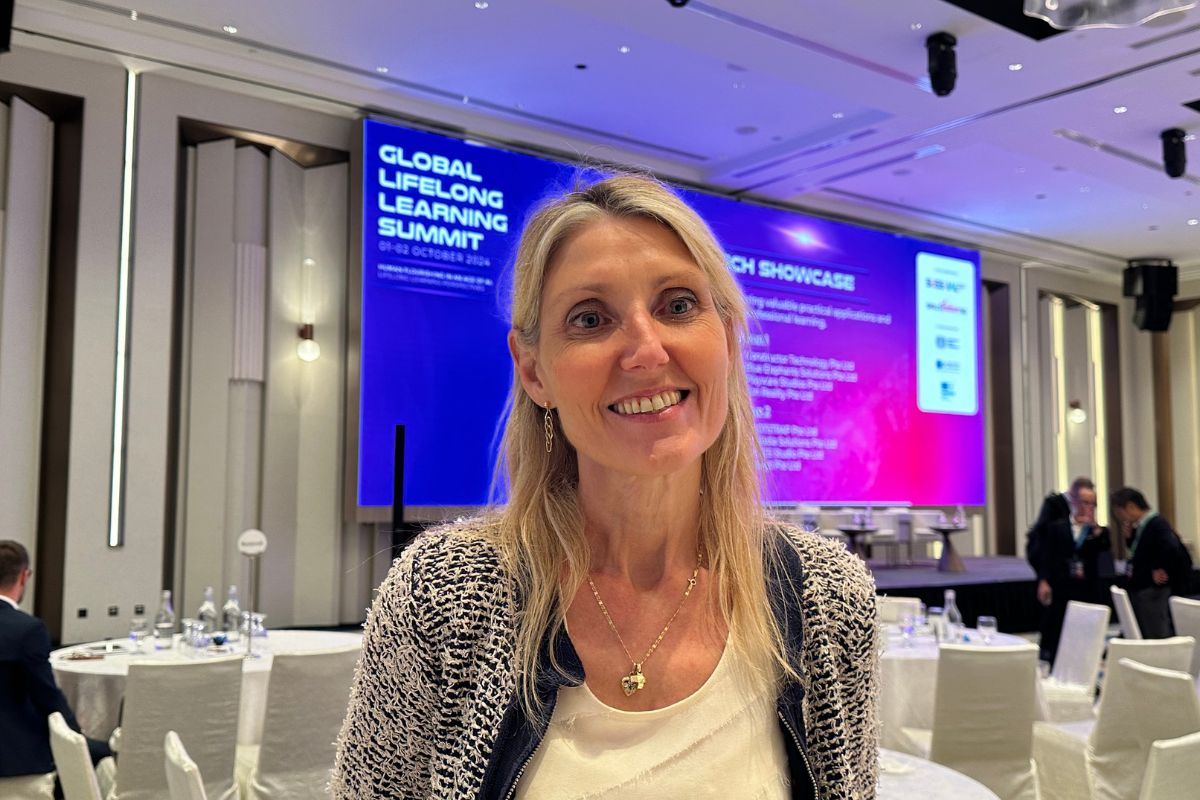SMC Publishes State of the Nation 23 with regional, ethnic and gender breakdown

Disadvantaged Chinese, black African and south Asian pupils outperform disadvantaged white British at school
People who grew up near London, Manchester or Edinburgh have the best chance of getting a professional job, irrespective of their socio-economic background, a report from the Social Mobility Commission reveals today. Those who grew up in these cities and nearby areas are more likely to secure a professional job, such as a doctor, lawyer or CEO, than people of the same socio-economic background from other areas (Fig 2.5). Yet the chances of unemployment, economic inactivity and lower working-class employment are also high among young people who grew up in the same areas – a modern “tale of two cities”, as those moving up and down grew up side by side.
However, if we look at long-range upward mobility – moving from the working class to a professional job – then outer London, along with Surrey and Sussex, is still the outlier (Fig 2.9). Young people also have more “promising prospects” – higher education, occupation and earnings – around London, even after we take their socio-economic background into account (Fig 3.2).
In contrast, those who grew up in areas such as Cornwall, East Yorkshire and North Lincolnshire, Northumberland and Tyne and Wear, and Cumbria, have a lower chance of getting into the professions or senior management, the analysis shows (Fig 2.5) (regions listed in Table 1.2, page 21).
State of the Nation 2023 – People and Places gives for the first time a detailed regional breakdown of social mobility prospects including education, occupation and pay. The 250-page analysis, which covers 41 regions, shows starkly that social mobility not only depends on what your parents do, and your education and skills, but also on where you grew up.
The picture is more nuanced than the traditional north-south divide. The data confirms clear geographical inequalities across the country, but reveals there is no simple pattern of well-off and badly-off areas.
It demonstrates the need to look within areas, as well as between them, as advantage can sit beside disadvantage. For example, people who grew up near London, Manchester or Edinburgh have the best chance of getting a professional job, irrespective of their socio-economic background. But the chances of unemployment, economic inactivity and lower working-class employment are also high among young people who grew up in the same areas (Figs 3.3).
Children on free school meals in the capital also do much better than the average FSM pupil. And those who grew up in the capital have some of the best upward mobility chances of moving from a working-class background to a professional job.
“The data shows why it’s just as important to look within areas as it is between them,” said Alun Francis, chair of the Social Mobility Commission (SMC). “And, despite popular narrative, there isn’t a clear cut north-south divide.”
A game-changing interactive Data Explorer Tool is also being launched today which allows a much more detailed look at the 41 regions across the country. For the first time, regional leaders, policy makers and the public can find out how their region fares on a range of social mobility indicators. The Commission hopes this more granular detail, which gives a more nuanced picture of geographical inequalities, will be used across Whitehall.
“We hope these new geographical findings and the Data Explorer Tool in particular will inform Whitehall’s levelling up agenda and help regional leaders tackle local challenges,” said Mr Francis.
Building on the rich findings in the report, he will draw up a new policy framework for the Commission and flesh out a new approach in the coming weeks and months. With the Commission Mr Francis will focus on four key areas which will be reflected in new pieces of work this autumn: Growing opportunities, Nurturing talent, Developing skills and talent, and Better data and evaluation.
General social mobility
A wide range of indicators in the report shows that occupational mobility overall does not seem to have declined, and may have slightly improved over the last 4 decades. The chances of a man of working-class origin reaching a professional job improved greatly over the 20th century. Education mobility has also improved – more people have been going to university, even when their parents did not.
However, there are still worrying links between parents’ circumstances and those of their children. Those whose parents have degrees are far more likely (64% against 18%) to get a degree than those whose parents have no qualifications (Fig. 2.16). Adults with lower working-class parents are about three times as likely – 30% against 11% – to be in a lower working class occupation themselves as adults with parents in higher professional occupations (Fig. 2.4). Finally, relative housing mobility has significantly worsened since 1991. This means that children’s home ownership has become much more strongly linked to parents’ home ownership (Fig. 2.30).
A new social mobility divide could also be opening up with higher degrees. Nearly 4 times as many young people from higher professional backgrounds have a higher degree than those from lower working-class backgrounds, compared with around 2.5 times as many for first degrees (Fig. 3.25).
This year, the Commission has also analysed social mobility outcomes relating to protected characteristics such as ethnicity, gender and disability for the first time.
Ethnicity
The report provides a fascinating breakdown of the social mobility prospects of a wide range of ethnic groups, with young people of Chinese origin coming out on top on a range of indices.
Chinese pupils on free school meals not only outperform their FSM peers from all other ethnicities – including white British – at age 11, but they also perform better than the average child who is not on FSM. In 2021/22, 76% of children of Chinese ethnicity on free school meals achieved the expected standard in reading, writing and maths at age 11 (Fig. 3.12). This is significantly higher than the national average of non-FSM eligible pupils (66%).
Chinese young people are also likely to be paid more than their peers once they get a job. The average Chinese young person with a higher professional background earns about £18.20 per hour in their late 20s, compared with around £15.50 for a similar white British person.
It’s not only Chinese pupils who do well. Children on FSM from most other ethnicities do better than white British children at age 5, age 11 and at GCSE. Other high performers include those from Bangladeshi, Indian and black African ethnicities while the lowest performers include white British, black Caribbean, Travellers of Irish heritage and Gypsy/Roma children.
However the picture changes when people leave school, and in some cases the ethnicity gains in education are reversed. Several ethnic minority groups (black Caribbean, black African and Pakistani) are more likely to be unemployed than white British young people from the same socio-economic background (Intermediate outcome 3.2).
Some people, such as those from Pakistani, Bangladeshi and black African ethnicities, are more likely to become university graduates but this does not translate to higher chances of getting a professional job.
Anthony Heath, Director of the Centre for Social Investigation at Nuffield College, Oxford said:
“The contrast between ethnic minority success within the educational system, and lack of success when entering the labour market, should make us all start thinking differently to ensure equality of opportunity.”
Differences between women and men
While girls are doing better at school and university than boys, they still don’t fare as well later on. Better educational outcomes for women fail to translate into better jobs, the research shows. They are more likely to get a degree than men, but they will earn less later on and are less likely to be in higher professional jobs, such as lawyers and doctors.
Women are also less likely than men to experience upward occupational mobility. Only 8% of women moved from a lower working-class background to a higher professional job, compared with 14% of men.
They are also significantly less likely than men to own their own home. Among those whose parents did not own a home, only 35% of women compared to 55% of men owned their own homes.
Disability
The report shows that social mobility outcomes for people with a disability are consistently worse than for those without across a range of areas including education, occupation, income and housing. In some cases, the gap is even wider among those from a lower working-class background, suggesting that professional families are better able to mitigate the effects of disability on young people’s life chances.
People from all socio-economic backgrounds who have a limiting long-term illness or disability are much less likely than people without a disability to enter the professional classes (Fig 2.8). They are also much more likely to have a lower working-class job and are more likely to be downwardly mobile than their peers.
Sector Response
Tokunbo Ajasa-Oluwa, Career Ready CEO, said:
“Today’s report makes for stark reading about the scale of the social mobility challenge we face. We will fail young people and our future economy if we do not take urgent action and invest in the next generation of talent.
“For many years, too many young people across the UK have faced an uphill struggle because of their background or where they grew up. But as today’s report says, the struggle facing today’s generation is even tougher.
“We know from our experience of working with 2,000 young people a year at Career Ready that the cost-of-living crisis, wider economic concerns, and the continued impact of the pandemic have exacerbated the challenges they face in education and employment. Regional inequality is also becoming further entrenched, with growth and early career opportunities centred in London, Manchester, and Edinburgh.
“It is imperative that we – government, policy makers, employers, third sector organisations – take urgent action to help young people overcome these challenges and ensure there’s fair access to opportunities across every region.
“Our evidence and experience of working with young people and employers shows that mentoring and paid internships can provide the long-term social mobility boost needed, as well as ensure that employers are connecting with future talent in their local community and giving them the local opportunities to succeed.
“Equally, we need to ensure that our approach to social mobility is about creating opportunity for every young person, regardless of where they come from, in a way that reflects their aspirations and circumstances. It’s not just about the traditional route of university and into a graduate scheme.”
The Social Mobility Commission is an advisory, non-departmental public body established under the Life Chances Act 2010 as modified by the Welfare Reform and Work Act 2016. It has a duty to assess progress in improving social mobility in the United Kingdom and to promote social mobility in England.
It comprises:
Commission Chair
Alun Francis, Principal and CEO of Blackpool & The Fylde College
Commissioners
Dr Raghib Ali, Senior Clinical Research Associate at the MRC Epidemiology
Unit at the University of Cambridge.
Matthew Goodwin, Professor of Political Science at the University of
Kent.
Ryan Henson, Chief Executive Officer at the Coalition for Global
Prosperity.
Parminder Kohli, Senior Vice President EMEA at Shell Lubricants.
Resham Kotecha, Head of Policy at the Open Data Institute.
The Rt Hon Baroness Tina Stowell of Beeston MBE.
Rob Wilson, Chairman at WheelPower – British Wheelchair Sport.











Responses